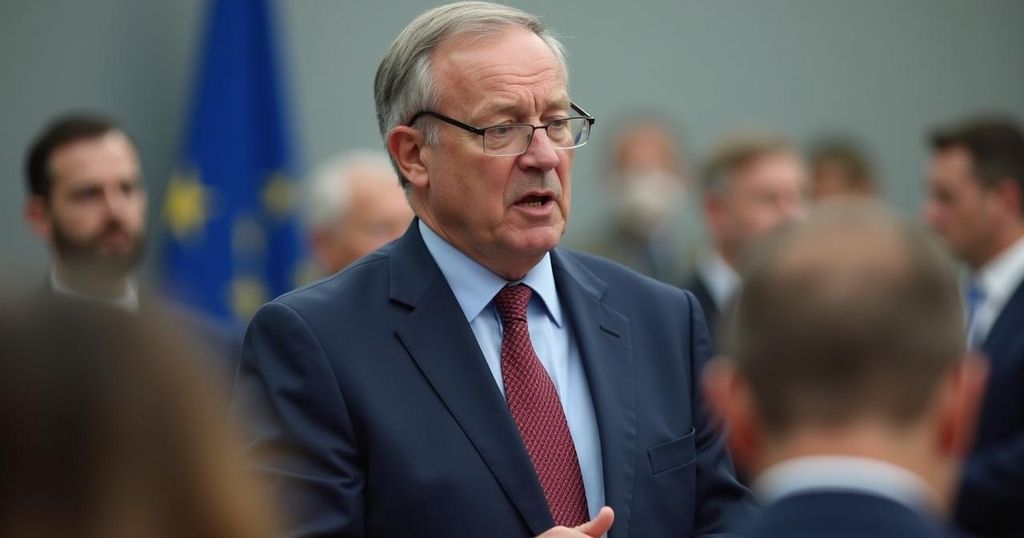Greek Deputy Minister Critiques EU’s Migration Policy Amidst Global Displacement Challenges
Sofia Voultepsi, the Greek Deputy Minister for Migration, has criticized the European Commission for its failure to implement an effective common migration policy, specifically regarding deportations. She warned that ongoing conflicts in the Middle East and Africa, coupled with climate change, are likely to increase migrant flows into Europe. Notable incidents include the recent rescue of migrants by the Greek coast guard and policy shifts in Poland and Italy concerning asylum processing and regulations.
A Greek official, Deputy Minister for Migration Sofia Voultepsi, has publicly criticized the outgoing European Commission for its inadequacies in establishing a cohesive deportation policy for migrants. During a recent conference in proximity to Athens, Voultepsi stated that while a significant migration pact had been agreed upon earlier in the year, it still lacks essential operational elements. “We got the (agreement), but the basic piece is still missing: Returns,” she indicated, underscoring the need for a unified framework for asylum, returns, and integration at the EU level. Voultepsi expressed concern regarding the increasing risks posed by conflicts in the Middle East and Africa, alongside the adverse impacts of climate change, which she believes are intensifying the flow of migrants towards Europe. In her remarks, she alluded specifically to the rising refugee situation in Lebanon, aggravated by ongoing hostilities, and cited countries such as Somalia, Ethiopia, and South Sudan as notable contributors to this migrant surge due to both war and environmental changes. Greece serves as a critical entry point for these migrants, who often embark on perilous journeys across the Mediterranean from locations like Turkey and Libya. The Greek coast guard recently reported the rescue of 81 individuals from a distressed vessel attempting to navigate from Turkey to Italy, highlighting the continual need for urgent response efforts. Additionally, in other parts of Europe, significant policy developments are occurring; for instance, an Italian naval vessel is scheduled to land in Albania with migrants whose asylum applications will be managed there based on an agreement with Italy, while Poland is contemplating a temporary suspension of asylum rights under Prime Minister Donald Tusk’s new migration policy proposal.
The concerns regarding migration policy in Europe have grown increasingly pressing due to escalating conflicts and climate change phenomena, which together exacerbate the influx of displaced populations seeking refuge in the European Union. The EU’s current migration strategy, although officially revised, faces scrutiny regarding its execution on critical elements, particularly related to the return of individuals seeking asylum. Greece, given its geographical location near conflict zones and as a frontline state for migrants entering Europe, plays a significant role in this dynamic. The ongoing issues have prompted various member states to reassess their approaches to asylum and immigration, with reactions that vary widely across the continent.
In summary, the remarks made by Deputy Minister Sofia Voultepsi reflect a broader dissatisfaction with the effectiveness of the EU’s current migration policy framework. The need for a comprehensive approach to managing the influx of migrants, particularly in light of the growing pressures from war and climate change, underscores the urgency for decisive and cooperative policies among EU member states. Greece’s position as a primary gateway for migrants further emphasizes the critical nature of these discussions as Europe approaches mid-2026, when new agreements are anticipated to be fully implemented.
Original Source: www.independent.co.uk




Post Comment